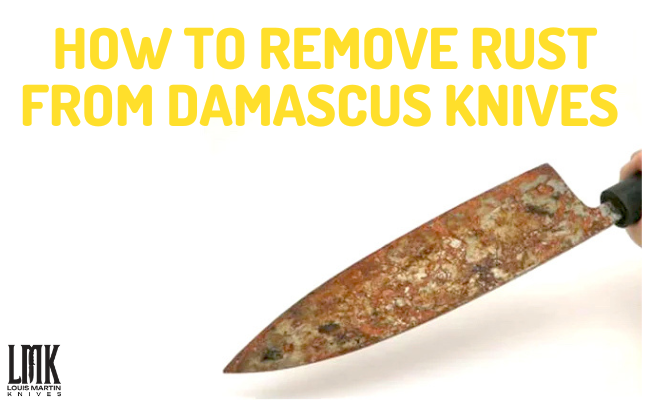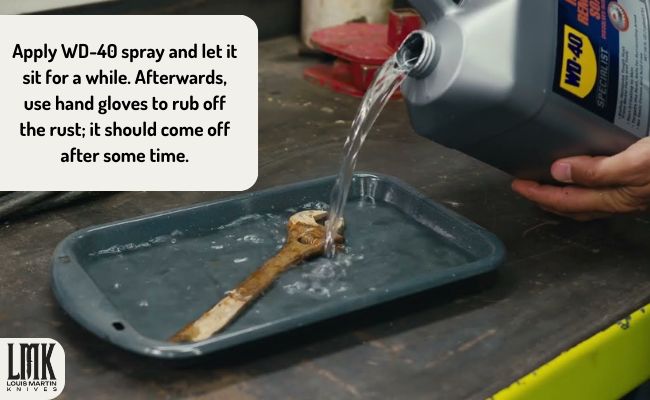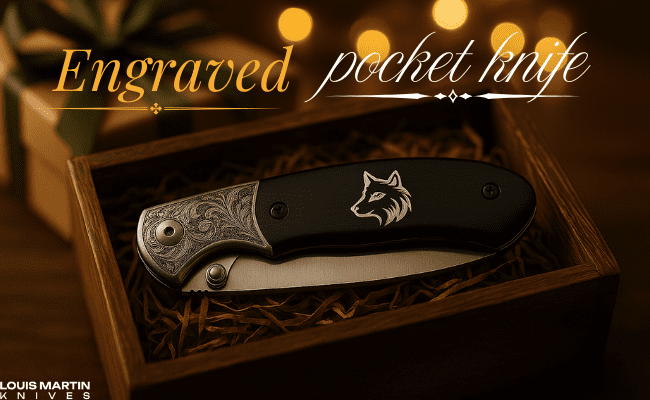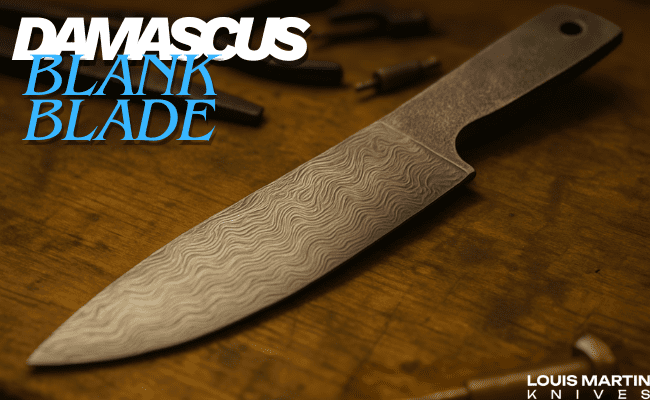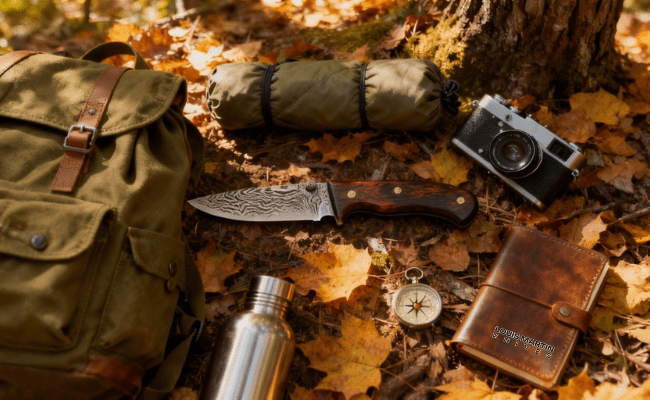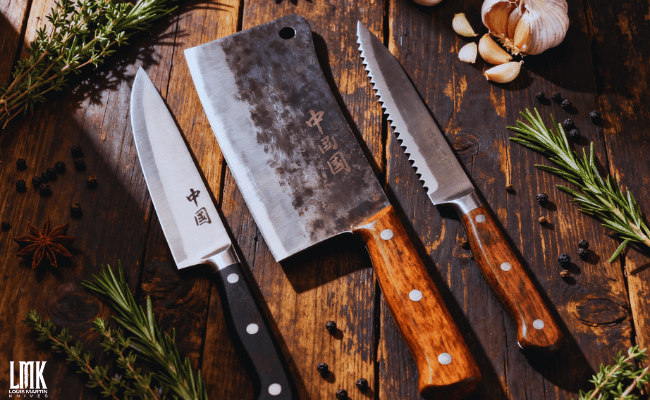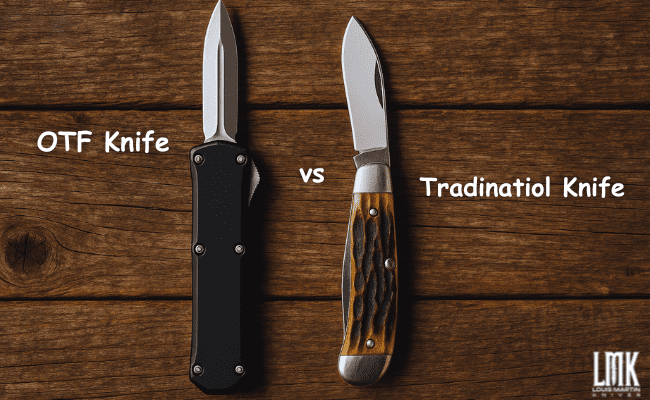Damascus knives, renowned for their intricate patterns and exceptional craftsmanship, demand meticulous care to maintain their pristine condition. Rust, the arch-nemesis of steel, can quickly mar the exquisite beauty of these prized blades. But fear not, for with the right knowledge and approach, you can effectively remove rust and restore your Damascus knife to its former glory.
Survival Knife is a renowned brand that handcrafts exquisite knives with unparalleled precision and attention to detail. Each knife is a masterpiece, meticulously crafted from the finest materials and showcasing intricate designs. Louis Martin Custom Knives are not just tools; they are works of art, cherished by collectors and discerning individuals worldwide.
Rust and Its Impact on Damascus Knives
Rust, the reddish-brown corrosion that forms on iron-based metals, is an electrochemical reaction that occurs when iron atoms react with oxygen in the presence of water or an electrolyte. In the case of Damascus knives, the high carbon content of the steel makes it particularly susceptible to rust.
Rust can not only compromise the aesthetic appeal of your Damascus knife but also diminish its sharpness and overall performance. Over time, severe rust can even lead to structural damage, rendering the knife unusable.
Essential Tools for Rust Removal
Before embarking on your rust removal mission, equip yourself with the necessary tools:
Usage of WD-40 for Rust Removal
WD-40, a popular multi-purpose lubricant and rust remover, can be effectively used to tackle rust on a Damascus knife. To remove rust from a Damascus blade, start by spraying WD-40 generously on the affected areas, ensuring complete coverage. Allow the lubricant to penetrate the rust for about 10 to 15 minutes. The WD-40 works by loosening the rust, making it easier to wipe away. Use a soft cloth or a fine steel wool pad to gently scrub the rusted areas, applying moderate pressure.
The lubricant helps to break down the rust, and the cloth or steel wool aids in lifting it from the surface of the knife. Repeat the process if necessary until the rust is entirely removed. Once the rust is gone, wipe the knife clean with a dry cloth and consider applying a thin layer of oil or protective coating to prevent future rusting. This method not only restores the aesthetic appeal of the Damascus knife but also helps maintain its longevity and functionality.
Fine-grit sandpaper
Opt for sandpaper with a grit rating of 1000 or higher to gently remove rust without damaging the delicate Damascus knife pattern.
White vinegar
White vinegar’s acidic properties help dissolve rust without harming the Damascus knife steel. A brief five-minute soak in white vinegar is all that’s needed to clean the knife. Do not risk injury by continuing for any extended period of time.
Baking soda
Baking soda acts as a mild abrasive, aiding in the removal of stubborn rust spots. Make sure to clean the blade well before you use the baking soda. Any dirt or debris on the blade will make this strategy less effective. You should use the right cleaning product and try to stay away from water, which could make things worse.
POTATOES
Potatoes possess an astonishing ability to eradicate rust, defying skepticism that may arise. They contain oxalic acid, a component found in various cleaning products. This acid for damascus chef knife, a perfect companion for your rusted stainless steel knives, wields the power to dissolve rust and cleanse with precision.
Performing this method can be done in two ways. To begin, for knives that lack excessive rust, one may insert the Damascus kitchen knife into a potato and allow it to rest for a few hours. Once extracted, the knife can be meticulously cleansed, effortlessly eradicating any traces of rust.
Harness the potent synergy of potato, dish soap, and relentless effort. Slice through the potato, severing it into two equal parts, and douse it with a lathering of dish soap, while adding a delicate dusting of salt or baking soda. These things, like a sharp blade, chef knife set, and damascus knife set effortlessly eliminate the pesky rust.
Salted lemon juice
You can treat rusty damascus knives with lemon, another acidic food. When you add the abrasive salt to the mix, you have the ideal homemade cleaner.
Be sure to salt the rusty areas of the knife. Scrub them with lemon rind after letting the solution sit for a few hours. If it isn’t cutting it, you may always use steel wool for a more powerful solution—ideal for really entrenched rust.
Microfiber cloth
Use a soft, lint-free microfiber cloth to clean and polish the damascus chef knife without leaving scratches.
Mineral oil
Mineral oil provides a protective coating that prevents further rust formation.
Step-by-Step Rust Removal Process
Initial Cleaning
Begin by gently wiping the Damascus knife set with a clean, damp microfiber cloth to remove any loose dirt or grime.
Vinegar Bath
Submerge the rusted area of the Damascus knife in white vinegar for 10-15 minutes. The vinegar will work its magic, dissolving the rust.
Sanding
If any rust remains, carefully sand the affected area using fine-grit sandpaper. Avoid applying excessive pressure to preserve the Damascus pattern.
Baking Soda Scrub
For stubborn rust spots, create a paste of baking soda and water. Apply the paste to the rusted area and gently scrub with a soft brush.
Rinsing and Drying
Once the rust is removed, thoroughly rinse the blade with clean water and pat it dry with a microfiber cloth.
Mineral Oil Application
Apply a thin layer of mineral oil to the entire blade using a clean microfiber cloth. This will protect the blade from further rust formation.
Preventive Measures to Shield Your Damascus Knife
To minimize the risk of rust and maintain the integrity of your Damascus knife, follow these preventive measures:
Regular Cleaning
After each use, wash your Damascus knife thoroughly with warm, soapy water. Dry it immediately and completely with a soft towel.
Oil Application
Regularly apply a thin layer of mineral oil to the Damascus knives to create a protective barrier against moisture.
Proper Storage
Store your Damascus knife in a dry, humidity-controlled environment. Avoid storing it in leather sheaths, as they can trap moisture and promote rust formation.
Prompt Rust Removal
Address any signs of rust immediately to prevent further damage and maintain the knife’s condition.
Conclusion
Damascus knives, with their rich history and exceptional craftsmanship, deserve the utmost care and attention. By understanding the causes of rust and employing the proper rust removal techniques, you can safeguard the beauty and functionality of your Damascus knife for generations to come. Remember, regular maintenance and prompt rust removal are key to preserving the legacy of these treasured blades.
FAQs
How do I prevent rust from forming on my Damascus knife?
- The best way to prevent rust from forming on your Damascus knife is to keep it clean and dry. After each use, wash your knife with warm, soapy water and dry it immediately with a soft towel. You should also regularly apply a thin layer of mineral oil to the blade to create a protective barrier against moisture.
What is the best way to remove rust from my Damascus knife?
- The best way to remove rust from your Damascus knife is to use a fine-grit sandpaper with a grit rating of 1000 or higher. You can also soak the rusted area of the blade in white vinegar for 10-15 minutes, or make a paste of baking soda and water and apply it to the rusted area.
Can I use a hook or fork to remove rust from my Damascus knife?
- No, you should never use a hook or fork to remove rust from your Damascus knife, as this will scratch the blade and damage the delicate Damascus pattern.
Why Choose Louis Martin Custom Knives?
- Unparalleled Craftsmanship: Each Louis Martin Custom knife is a testament to the brand’s commitment to excellence. Skilled artisans meticulously handcrafted each knife, ensuring every detail is perfect.
- Superior Materials: Louis Martin Custom Knives uses only the finest materials, including premium steels, exotic hardwoods, and precious metals. This dedication to quality ensures that each knife is not only beautiful but also durable and long-lasting.
- Unique Designs: Louis Martin Custom Knives are not just functional; they are also works of art. Each knife features intricate designs that reflect the brand’s artistry and heritage.
